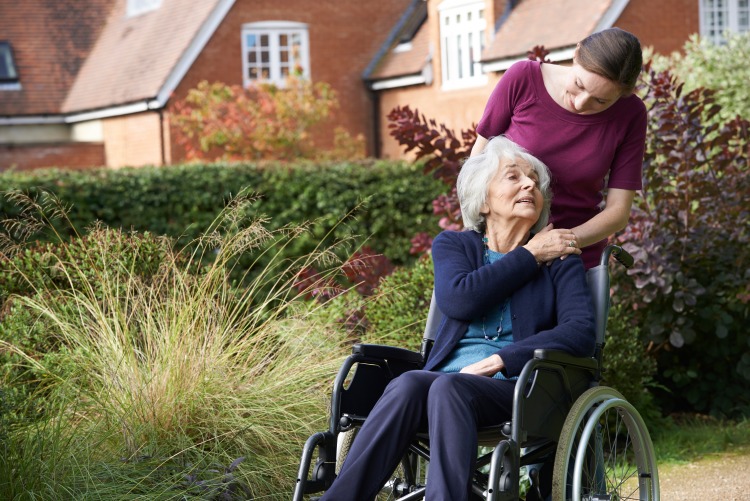At a Glance:
- Memory loss affects conversation: Patience and empathy are essential.
- Practical communication tips: Keep sentences short, speak calmly, use names, and allow extra time.
- Avoid common pitfalls: Do not correct forgotten details, ask “Do you remember?” or show frustration.
- Connection matters: Shared activities, nonverbal cues, and caregiver self-care strengthen relationships.
Watching a loved one experience memory loss can be one of the most difficult challenges a family faces. Simple conversations that once flowed naturally may now feel confusing, repetitive, or even frustrating. Yet, finding ways to communicate is one of the most meaningful ways to preserve connection, provide comfort, and show love.
As of 2025, approximately 7.2 million Americans aged 65 and older are living with Alzheimer’s dementia. By 2050, this number could grow to 12.7 million if no major breakthroughs are made, according to the Alzheimer’s Association. With so many families affected, learning how to overcome conversational challenges with seniors with dementia is an essential skill. While memory loss changes how conversations happen, it does not erase the need for human connection. By focusing on patience, empathy, and presence, families can maintain meaningful relationships even as communication evolves.
How to Talk to Someone with Dementia
Below are some simple dementia communication strategies that can make interactions smoother and less stressful. These tips are designed for everyday situations and can help preserve dignity and emotional connection.
Tips for Better Conversations
- Keep it simple: Use short sentences and straightforward words. This makes it easier for your loved one to process what you are saying without feeling overwhelmed.
- Stay calm and kind: A gentle tone can provide reassurance even if the words are hard to follow. Your mood often sets the tone of the entire conversation.
- Use names often: Saying a person’s name helps with orientation and offers comfort. It can also reduce confusion when multiple people are in the room.
- Make eye contact: Shows respect and signals that you are fully present. This also helps your loved one focus more clearly on the interaction.
- Allow extra time: Nonverbal moments are not a failure. Giving space for a response can make conversations less pressured and encourage participation.
- Create a quiet space: Minimize distractions so your loved one can focus more easily. Turning off the TV or radio often makes a big difference.
- Use gestures or visuals: Pictures, facial expressions, or pointing can help bridge gaps in memory or language changes. Visual cues can often spark recognition when words fall short.
- Focus on feelings, not facts: If a detail is inaccurate, it is better to validate the emotion than to correct the memory. What matters most is that your loved one feels heard and understood.
What to Avoid
- Correcting or arguing about forgotten details: This often leads to frustration on both sides and rarely changes the outcome. Instead, redirect the conversation to something more positive.
- Asking “Do you remember?”: Such questions can cause anxiety or embarrassment. A gentler approach is to share the memory yourself and invite them to join in if they can.
- Talking too quickly, too loudly, or in a patronizing way: This can feel overwhelming or demeaning. Aim for a natural, respectful tone that supports dignity.
- Showing visible frustration when questions or stories are repeated: Remember, many seniors with dementia experience short-term memory challenges and repetitive speech. Responding with patience helps support your relationship, showing that connection matters more than the words themselves.
The Family Caregiver Alliance notes that improving communication skills “will help make caregiving less stressful and will likely improve the quality of your relationship with your loved one.” This perspective is a reminder that these tips are not just about managing symptoms. They are about preserving connections and making daily life more positive for both the person living with memory loss and the caregiver.
Staying Connected and Caring for Yourself
Connection with someone experiencing memory loss does not rely solely on words. Simple activities like listening to music from their youth, looking at old photos, holding hands, or walking together can provide comfort and joy. These moments of closeness reinforce that love is still present, even when memory fades. Shared routines such as folding laundry or watering plants can also bring familiarity and reassurance.
At the same time, caregivers must remember to care for themselves. Communication challenges can be tiring, and it is natural to feel stressed or overwhelmed. Taking short breaks, sharing responsibilities with family members, and joining caregiver support groups are healthy steps that make the journey more sustainable. Remember that you are not alone, and small efforts to connect matter deeply.

Closing Thoughts
Communicating with someone with memory loss is not about getting every detail right. It is about patience, compassion, and preserving the bond you share. While dementia changes conversations, it cannot erase the power of kindness or the comfort of presence. Every smile, touch, and moment of understanding helps remind your loved one that they are valued and loved.
For families across the country, these strategies can ease daily interactions and create more peaceful, meaningful connections. While memory may fade, the ability to love and connect remains.
References
[1] “Communication.” Alzheimer’s Association, www.alz.org/help-support/caregiving/daily-care/communications. Accessed 26 Aug. 2025.
[2] Communicating with Someone Who Has Alzheimer’s Disease | National Institute on Aging, www.nia.nih.gov/health/alzheimers-changes-behavior-and-communication/communicating-someone-who-has-alzheimers. Accessed 26 Aug. 2025.
[3] Mandell, AARP, Judy. “How to Better Communicate with a Loved with Dementia.” AARP, www.aarp.org/caregiving/home-care/talk-to-someone-with-dementia/. Accessed 26 Aug. 2025.
The information provided in the article is for general informational purposes only. This information is not a substitute for medical advice. Accordingly, before taking any actions based upon such information, you are encouraged to consult with the appropriate professionals.

